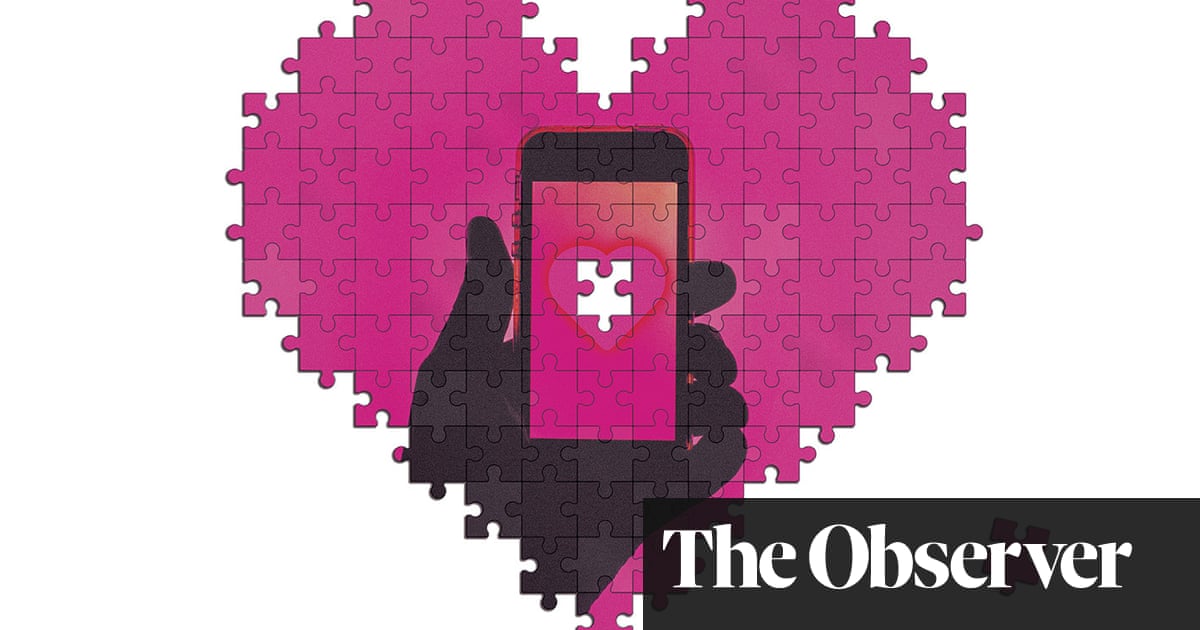‘The science isn’t there’: do dating apps really help us find our soulmate?

🌈 Abstract
The article discusses the impact of dating apps on romantic relationships, the lack of scientific evidence on their effectiveness, and the efforts of researchers to study the dynamics of online dating and develop new research-oriented dating apps.
🙋 Q&A
[01] Class-Action Lawsuit and Concerns about Dating Apps
1. What are the key concerns raised in the class-action lawsuit against Match Group?
- The lawsuit accuses Match Group, the owners of dating apps like Tinder, Hinge, and OkCupid, of using a "predatory business model" and doing everything to keep users hooked, in contrast to Hinge's claim of being "designed to be deleted".
2. What are the main debates surrounding the potential harms of dating apps?
- The lawsuit has crystallized widespread dissatisfaction with dating apps and stimulated new debates about their potential to harm mental health, though the central issue of whether they actually work in helping people find their "soulmate" remains unresolved.
[02] The Prevalence and Impact of Online Dating
1. What do the statistics say about the rise of online dating?
- In the US, more than half of all heterosexual couples and an even higher proportion of gay couples now meet online, according to Stanford University sociologist Michael Rosenfeld.
- Online dating has steadily replaced traditional ways of finding mates, such as through friends, work, or places of worship.
- The pandemic temporarily increased the number of single adults in the US by 10-12 million, but online dating is expected to remain a permanent fixture of the social landscape.
2. What are the open questions about the impact of online dating?
- Research is lacking on how happy or durable the couples are that meet through online dating, and whether the apps are presenting users with the most suitable candidates.
- The companies that own the dating apps do not generally release their data, and scientists have no greater inside knowledge than the public.
[03] The Need for New Research and Approaches
1. What are the key challenges in studying the dynamics of online dating?
- Psychologists and sociologists have been addressing different parts of the problem, and there is a need to follow couples through time, starting from the pool of uncoupled, potential partners.
- Ethical issues arise in how to present people with candidates they might not have chosen themselves, as demonstrated by the controversial OkCupid experiment.
2. What are the goals of the new research-oriented dating apps being developed?
- Researchers like Elizabeth Bruch and Amie Gordon are building their own apps that will serve as both matchmakers and research tools, with the goal of being more transparent about their methods and findings.
- The apps aim to explore less studied aspects of the user experience, such as the sense of alienation some users feel and discrimination against minority groups.
[04] Concerns about the Addictive Nature of Dating Apps
1. What are the parallels drawn between dating apps and slot machines?
- Anthropologist Natasha Schüll sees clear parallels between dating apps and slot machines, as they both hook people with the promise of love (or riches) and engage the brain's reward circuits through their game-like design.
- Some habitual users of dating apps report entering a trance-like state similar to that described by slot machine players.
2. How do the researchers view the broader implications of the "addictive" nature of dating apps?
- Bruch worries that the convergence of gamification and the shift of dating online means people are being forced to run the gauntlet of addiction to satisfy a basic human need.
- Schüll argues that the bigger criticism is of the contemporary model of capitalism, the "click economy", which exploits these hook-and-hold mechanisms.
[05] The Future of Dating Apps and the Need for Regulation
1. What are the different perspectives on the role and impact of dating apps?
- Rosenfeld sees the dating apps as a net social positive, as they generate several million relationships per year in the US alone, despite some manipulative aspects.
- He argues that the apps should be regulated to rein in the gamified elements and increase transparency, but this is true of all social media platforms, not just dating apps.
2. What is the overall outlook on the future of dating apps?
- Rosenfeld believes that dating apps are here to stay and that it is better to work to improve them and learn from them, rather than vilifying them.
- The researchers aim to use their findings to help the companies hone their apps to work better for all users, though some remain skeptical that the companies' profit motives are compatible with users' desires to find love.